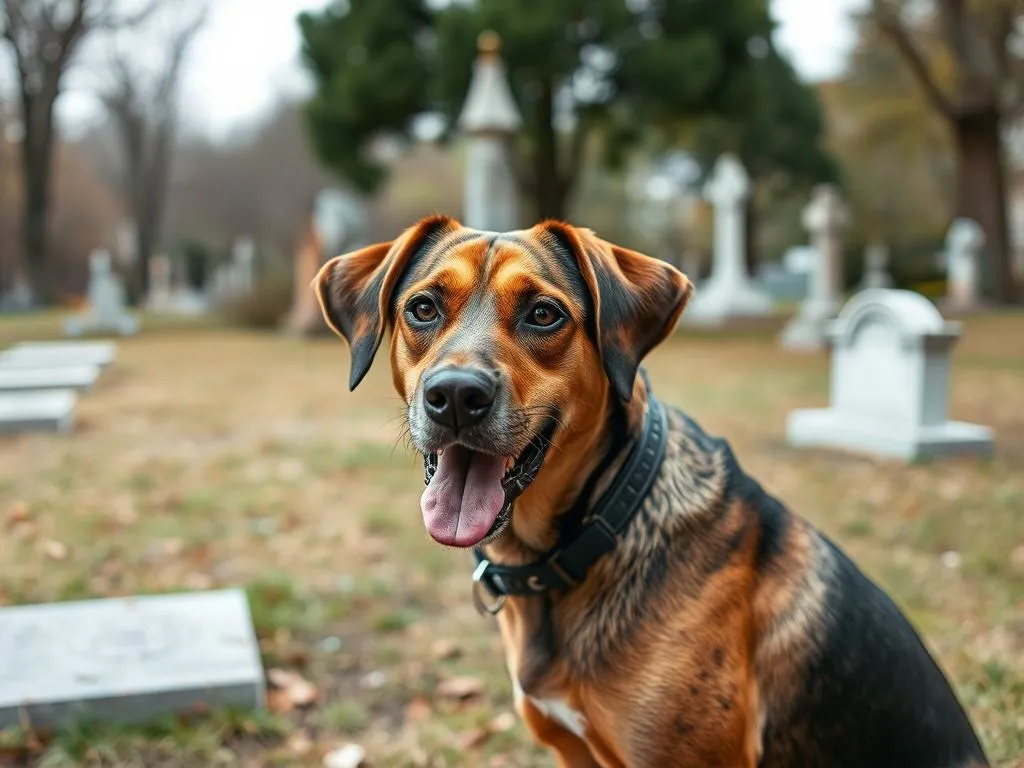
Cemeteries are often viewed as sacred spaces, places where we honor and remember our loved ones. The idea of dogs in these tranquil settings raises numerous questions regarding respect, etiquette, and regulations. As pet ownership continues to rise, many dog owners find themselves pondering, are dogs allowed in cemeteries? With varying rules across locations and changing societal attitudes, this article delves into the complexities of bringing dogs into these solemn environments.
Understanding Cemetery Regulations
National and State Regulations
Cemeteries are governed by a mix of national, state, and local regulations. Generally, the laws that govern public spaces can apply to cemeteries, but specific rules can differ significantly based on jurisdiction. For example, some states have explicit laws regarding pet access in public places, while others leave it up to local municipalities to determine their own policies.
In many cases, cemeteries are classified as private property, which allows the management to set their own rules concerning pet access. Therefore, it’s crucial to check the regulations specific to your locality before planning a visit with your dog.
Cemetery Policies
Individual cemeteries create their own policies, often reflecting their unique history, community values, and cultural significance. Many traditional cemeteries may prohibit dogs altogether, emphasizing the need for a respectful and quiet atmosphere. Others may adopt a more lenient stance, allowing dogs but requiring them to be leashed and cleaned up after.
For instance, some cemeteries, particularly those with a more park-like setting, may embrace dog owners and even provide designated areas for pets. On the contrary, historic cemeteries might have stricter rules to preserve the site’s integrity. Always research the specific policies of the cemetery you wish to visit.
General Attitudes Toward Dogs in Cemeteries
Historical Context
Historically, the presence of animals in sacred spaces has been viewed with caution. Many cultures associate cemeteries with reverence and solemnity, where the deceased are honored in a quiet environment. As such, animals, perceived as disruptive, were often excluded.
However, as society evolves, so do attitudes toward animals in public spaces. With the growing recognition of pets as integral members of families, many people now advocate for their inclusion in various social settings, including cemeteries.
Current Trends
Today, there is an increasing acceptance of pets in numerous public locales, including parks, restaurants, and even some retail stores. This shift reflects a broader change in societal attitudes towards pets, viewing them as companions that bring joy and comfort. Anecdotal evidence suggests that many dog owners appreciate the opportunity to share meaningful moments in cemeteries with their furry friends, finding solace in their companionship during visits to memorialize loved ones.
Surveys indicate that a significant number of dog owners believe that their pets help them cope with loss, enhancing the experience of visiting a cemetery. This sentiment is increasingly recognized by some cemetery managements, prompting discussions about creating more pet-friendly policies.
Reasons for Restrictions on Dogs
Respect for the Deceased
One of the primary reasons for restricting dogs in cemeteries is the need to maintain a respectful atmosphere for the deceased. Many cultures and religions emphasize the sanctity of burial grounds, regarding them as places of remembrance and reflection. The presence of dogs, which are often energetic and playful, can be seen as disruptive to the solemnity that these spaces require.
Understanding and respecting the cultural significance of a cemetery is vital for all visitors. Dog owners should consider how their pets might affect the experience of others who come to pay their respects, emphasizing the importance of maintaining decorum during visits.
Safety and Cleanliness
Safety and hygiene are also significant concerns when it comes to allowing dogs in cemeteries. Dogs may inadvertently disturb grave sites, dig in sensitive areas, or cause messes that can detract from the environment. Cemetery staff often face challenges with waste management, and the presence of dogs can complicate these efforts.
Moreover, not all dogs are trained to behave well in a quiet setting, which can lead to issues with noise or aggression. Therefore, many cemeteries take a cautious approach, prioritizing the comfort and safety of all visitors.
Exceptions and Special Cases
Pet-Friendly Cemeteries
Despite the restrictions common in many cemeteries, there is a growing number of pet-friendly burial grounds that welcome dogs. These cemeteries often have specific rules to ensure that the environment remains respectful while allowing pets to accompany their owners.
Some notable examples include:
- Greenwood Cemetery in Brooklyn, NY: This historic cemetery allows leashed dogs and encourages visitors to enjoy the natural beauty of the grounds.
- Rose Hills Memorial Park in Whittier, CA: This expansive cemetery features designated pet areas and holds annual pet memorial services, promoting a sense of community among pet owners.
- Forest Lawn Memorial Park in Glendale, CA: This cemetery allows dogs on leashes and even has special events for pet memorials.
The benefits of having pet-friendly burial grounds extend beyond convenience; they foster a sense of connection between human and animal companions during times of remembrance.
Special Events and Memorials
In certain cases, cemeteries may allow dogs during special events, such as pet memorials or themed gatherings that celebrate the bond between humans and their pets. During these occasions, guidelines are typically provided to ensure that all attendees can honor their loved ones without disruption.
Dog owners should always check with cemetery management about policies for specific events, as rules may vary widely depending on the nature of the gathering.
Best Practices for Visiting Cemeteries with Dogs
Preparing for Your Visit
Before heading to a cemetery with your dog, it’s crucial to check the specific rules of the site you plan to visit. Understanding the regulations can prevent any uncomfortable situations and ensure a more pleasant experience for everyone involved.
In addition to verifying the rules, it’s wise to prepare by bringing necessary supplies, including:
- A sturdy leash
- Waste bags for cleaning up after your dog
- Water and a portable bowl for hydration
- Treats or toys to keep your dog engaged
Etiquette Tips
When visiting a cemetery with your dog, practicing good etiquette is essential. Here are several tips to consider:
- Keep dogs leashed and under control: Always maintain control of your dog, especially in crowded areas where other visitors may be present.
- Respect personal space: Be mindful of others who are there to pay their respects. A dog’s presence should not intrude on their moment of reflection.
- Clean up after your dog: Always carry waste bags and clean up promptly. Leaving waste behind is not only disrespectful but could also lead to stricter regulations regarding pets in cemeteries.
Following these guidelines will help ensure that your visit is respectful and enjoyable for both you and other visitors.
Alternatives to Cemeteries for Dog Owners
Pet-Friendly Memorial Parks
For dog owners seeking an alternative to traditional cemeteries, pet-friendly memorial parks offer a wonderful solution. These parks are designed specifically for honoring pets and often include designated areas for dogs to roam and play while their owners remember their beloved companions.
Such spaces provide a more relaxed atmosphere where pet owners can celebrate the lives of their animals, fostering community and shared experiences. They often have amenities that cater to both pets and their owners, creating a peaceful environment conducive to remembrance.
Virtual Memorials and Online Tributes
In an increasingly digital world, virtual memorials and online tributes have become popular options for honoring loved ones, including pets. These platforms allow individuals to create lasting memorials that can be shared with family and friends, offering a personal touch without the constraints of physical space.
Many pet owners find comfort in these virtual memorials, as they can include their pets in the tributes, celebrating their lives alongside those of human family members. This approach allows for a flexible, inclusive way to remember and honor loved ones, whether they are two-legged or four-legged.
Conclusion
Navigating the question of are dogs allowed in cemeteries involves understanding the various regulations, cultural attitudes, and individual cemetery policies. While many traditional cemeteries maintain strict rules against dogs to preserve the solemn atmosphere, there is a growing trend toward more pet-friendly environments.
Ultimately, the key lies in balancing pet ownership with respect for burial grounds. By being informed and practicing good etiquette, dog owners can ensure that their visits to cemeteries remain respectful and meaningful. Sharing experiences and opinions on this topic can contribute to a broader understanding of how we can honor both our loved ones and our pets in these sacred spaces.
FAQs
Are there any cemeteries that specifically allow dogs?
Yes, several cemeteries have adopted pet-friendly policies. It’s essential to check the rules of individual cemeteries before visiting.
What should I do if I see a dog in a cemetery that isn’t allowed?
If you encounter a dog in a cemetery where they are not permitted, consider addressing the situation politely with the owner or notifying the cemetery management.
Can I bring my service dog to a cemetery?
Yes, service dogs are generally allowed in cemeteries, as they are considered essential for individuals with disabilities.
What is the best way to memorialize a pet?
Memorializing a pet can be done through various means, such as creating a dedicated space in your home, planting a tree in their honor, or utilizing virtual memorial platforms to celebrate their life.









